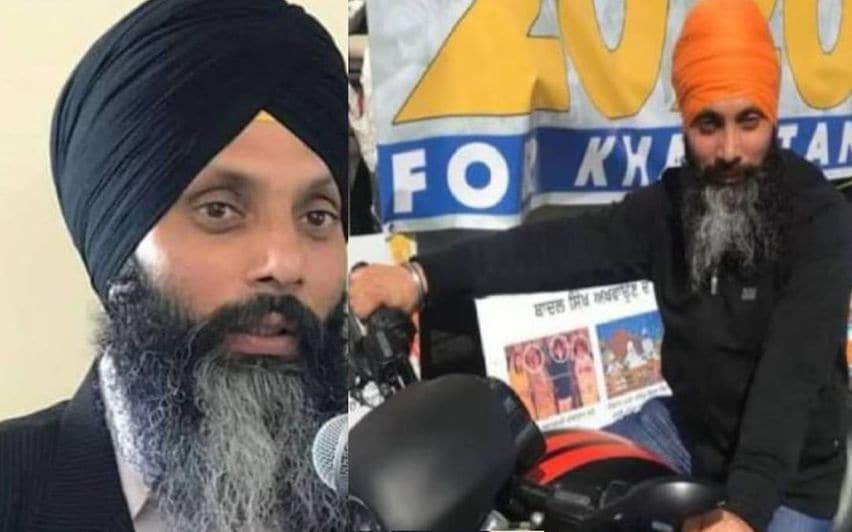


The recent arrest of three Indian citizens in Canada for their suspected involvement in the assassination of Sikh activist Hardeep Singh Nijjar has heightened tensions between India and Canada. These arrests come after Canadian Prime Minister Justin Trudeau suggested the potential involvement of Indian operatives in Nijjar's killing last year. The three individuals, Karanpreet Singh, Kamalpreet Singh, and Karan Brar, are each facing charges of first-degree murder and conspiracy to murder in connection with Nijjar's death. This development further complicates the fraught relationship between India and Canada since Nijjar's murder in 2023.
Arrests in Nijjar Assassination Heighten Tensions Between India and Canada
Following the recent arrest of three Indian citizens in Canada for their alleged involvement in the assassination of Sikh activist Hardeep Singh Nijjar, tensions between the two countries have escalated. This development adds fuel to an already strained relationship, marked by allegations of Indian interference and concerns over the safety of Sikh expatriates in Canada.
Background
Hardeep Singh Nijjar, a prominent Sikh activist and member of the Sikhs for Justice group, was shot and killed outside his home in Surrey, British Columbia, in June 2023. Canadian authorities attributed the assassination to "extremist elements within the Indian government" and launched an investigation.
In the months leading up to the arrest, Canadian Prime Minister Justin Trudeau had expressed concerns about the potential involvement of Indian operatives in Nijjar's killing. This prompted denials from the Indian government, which accused Canada of "baseless allegations."
Recent Arrests
On May 4, 2023, the Royal Canadian Mounted Police (RCMP) arrested three Indian citizens in connection with Nijjar's murder:
The arrests were made after a joint investigation involving Canadian and Indian law enforcement agencies. The accused are facing charges of first-degree murder and conspiracy to murder.
FAQs
1. Who is Hardeep Singh Nijjar?
Hardeep Singh Nijjar was a Sikh activist and member of the Sikhs for Justice group, which advocates for an independent Sikh nation. He was known for his vocal criticism of the Indian government and its treatment of Sikhs.
2. What are the allegations against the arrested individuals?
The three Indian citizens arrested in Canada are charged with first-degree murder and conspiracy to murder in connection with Nijjar's assassination. They are accused of being part of a plot to kill Nijjar due to his political views.
3. What evidence is there to support the allegations?
The RCMP has not disclosed specific evidence against the accused. However, the investigation involved cooperation between Canadian and Indian law enforcement agencies, suggesting the exchange of sensitive intelligence.
4. How have India and Canada reacted to the arrests?
The Indian government has expressed concern over the arrests and has called on Canada to provide evidence of the allegations. Canadian officials have maintained that the arrests were based on credible evidence and due process.
5. What are the implications for India-Canada relations?
The Nijjar assassination has further strained the already tense relationship between India and Canada. The arrests have deepened suspicions of Indian interference in Canadian affairs and raised concerns about the safety of Sikh expatriates in Canada.

Iran's foreign minister has announced that a prisoner swap deal with France is close to being finalized. The agreement would secure the release of Iranian nationals imprisoned in France and allow for the return of French citizens detained in Iran. This development comes as Germany announces its support for a French-led effort to establish a two-state solution in the Middle East.

Qatar's prime minister has accused Israeli Prime Minister Benjamin Netanyahu of destroying months of mediation efforts to secure a ceasefire deal and free remaining hostages in Gaza. With the lives of 20 hostages at risk, Qatar had been working with the US and Egypt to broker a deal, but Tuesday's attack on Hamas' leadership in Doha has killed any hope for a resolution. Despite Trump's promises that such an attack will not be repeated, Netanyahu continues to threaten Qatar, accusing them of harboring terrorists and vowing to take action if they don't comply.

In a shocking development, Israel has launched an attack on Hamas leaders in the Qatari capital, Doha, resulting in the deaths of six people. The Qatari government has condemned the attack as "state terrorism" and has raised questions about Israel's true intentions in the region. The attack ruptures the delicate ceasefire negotiations in Gaza, where Qatar has been acting as a mediator. This latest incident highlights the increasing involvement of Qatar in the volatile conflicts in the Middle East.

Israel's strikes on Yemen's capital come amidst warnings from their defence minister and public disapproval from Donald Trump following their attack on Doha. As the Middle East watches the tense situation unfold, Qatar struggles to recover from the unprecedented assault on their sovereign territory. A senior Qatari government member expresses anger and concern over the US's delayed warning of the attack, further complicating the already tense relations in the region.

Amid ongoing protests and the resignation of Prime Minister KP Sharma Oli, Nepal has appointed former Chief Justice Sushila Karki as the country's interim head. The death toll in the protests has risen to 25, with hundreds more injured. As the Nepali Army takes over security responsibilities, flights have resumed at the international airport and authorities are cautioning against the spread of misinformation on social media.

After two days of violent protests, Nepal Army Chief General Ashok Raj Sigdel successfully persuaded former Chief Justice Sushila Karki to become the interim Chief Executive of the country. This comes after the Gen Z protests and other groups reached a consensus with political parties to restore normalcy and form an interim government. The Nepal Army, for the first time, has stepped in to quell the chaos and bring diverse political forces together for dialogue.

Days of deadly protests in Nepal have led to the overthrow of KP Sharma Oli's government and the appointment of Sushila Karki as interim prime minister. Karki, the former chief justice, has expressed positivity towards India and its people, citing personal ties from her time studying in India. She assures the safety of Indians in Nepal and promises justice for those affected by the recent violence. Meanwhile, Nepalese troops are working to restore order and bring the country back to normalcy.

In a fiery speech at the 60th Session of the UN Human Rights Council, Indian diplomat Kshitij Tyagi slammed Switzerland for its "shallow and ill-informed remarks" on India's state of press and minorities. Tyagi called on Switzerland, as the current chair of the UNHRC, to focus on tackling its own challenges such as racism and xenophobia instead of pointing fingers at India. He also delivered a sharp rebuttal to Pakistan, labelling it as a "failed state" addicted to propaganda and terror. India, Tyagi underscored, will continue to protect its citizens and defend its sovereignty with unwavering resolve.

Protests against corruption in Kathmandu, Nepal took a destructive turn as the iconic Hilton Hotel was set on fire, leaving behind a charred skeleton of its once grand glass facade. The protests also included attacks on government buildings and political leaders' residences, causing chaos throughout the city. The destruction of the Hilton Hotel is significant as it represents Nepal's aspirations for growth in the hospitality industry, with social media users expressing fear for the country's future.

Indian fruit traders have united to boycott Turkish goods, particularly apples, as a show of solidarity with their armed forces. The move comes after Turkey's open support for Pakistan in the ongoing regional tensions between India and its neighbor. The Swadeshi Jagran Manch, a prominent nationalist organization, has also joined the call for broader economic sanctions against Turkey, citing the country's military partnership with Pakistan as a threat to India's sovereignty. The organization also reminded Turkey of India's assistance during a devastating earthquake in 2023, calling for citizens to prioritize self-reliance and boycott Turkish products and cultural exports.